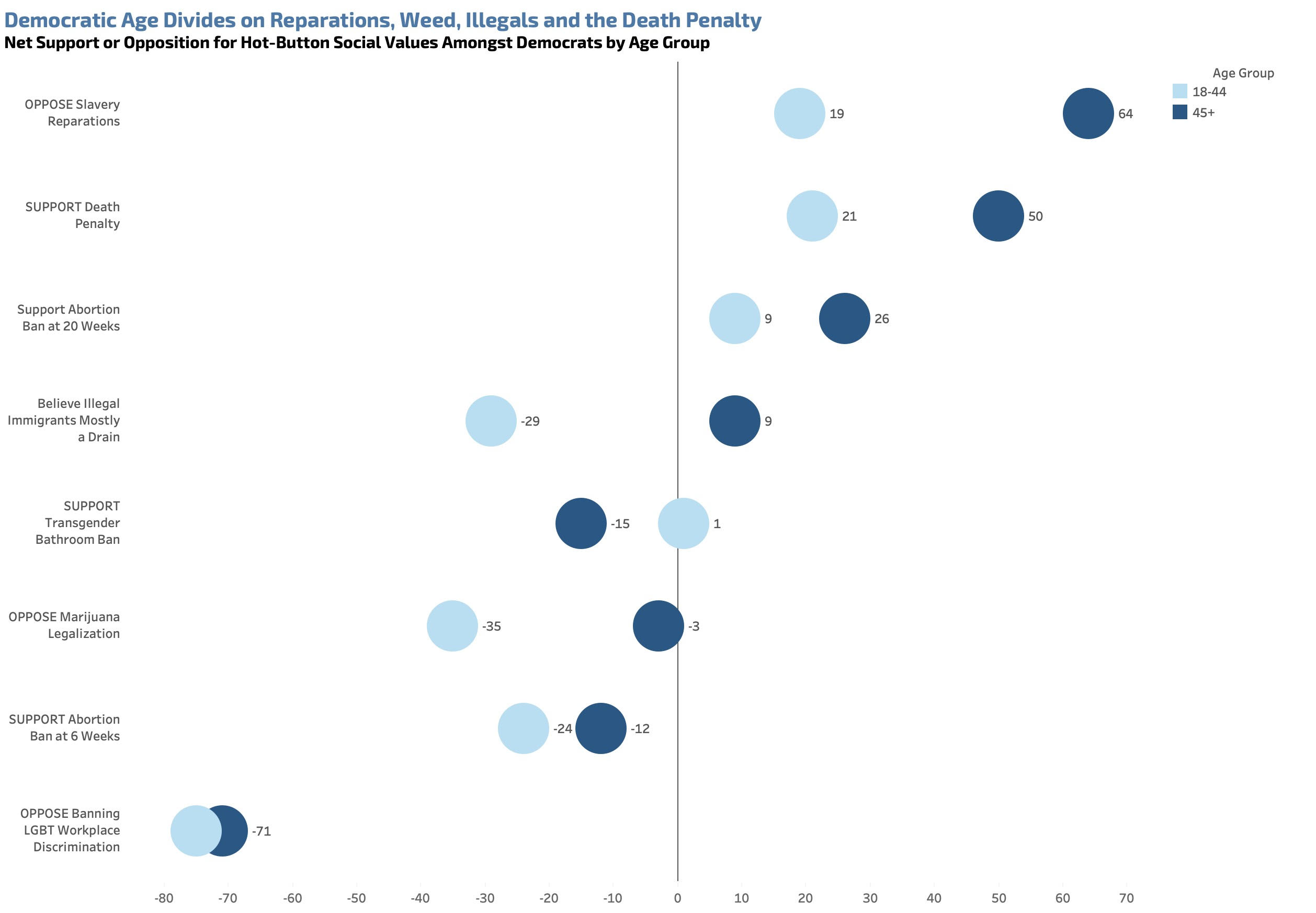This week, House Democrats announced they would open an inquiry to begin impeachment proceedings for President Trump, finally breaking in favor of the position of “the squad” — young, liberal, newly elected congresswomen who had clashed with leadership repeatedly over issues such as impeachment ever since they were sworn in.
But the battle between leadership (average age of 72) and “the squad” (average age of just over 38) has also exposed other fault lines in the Democratic Party over the Green New Deal, healthcare, and more. Nowhere is this showing up more in the Democratic electorate than the primary contest, particularly the gap in support from seniors and young Democrats for both Bernie Sanders and Joe Biden.
In the newest NBC/Wall Street Journal poll, which put former Vice President Joe Biden atop the pack at 31%, trailed closely by Elizabeth Warren at 25%, wide divisions open up when looking under the hood at the numbers. Among Democrats under the age of 35, Bernie Sanders surges into the lead at 33%, while Biden trails significantly at only 10%. (This puts Biden behind Andrew Yang among this demographic.) But among senior Democrats, those over age 65, the story is completely flipped: Biden wins almost half of this group (46%) while Sanders ties Beto O’Rourke and Amy Klobuchar at only 2%.
These aren’t just small variations, these are massive gulfs in a party already being defined at the congressional level by generational differences over how to approach critical issues like guns, the environment, gender, and race. Even though both men are in their 70s, if either Bernie Sanders or Joe Biden wins the Democratic nomination, they will be leading a party sharply divided along generational lines.
Under Sanders, older Democrats may feel lost in a party that has moved strongly to the left and has left them behind. Under Biden, young Democrats may again feel underwhelmed, disenfranchised, and left out of the party’s decision making.
According to new polling from my firm Echelon Insights, the gaps aren’t just about Biden versus Bernie, but extend to some key hot-button issues. We asked voters if they supported or opposed things like reparations, the death penalty, abortion bans at various stages of pregnancy, marijuana legalization, and more. Particularly on issues of race, immigration, drugs, and the justice system, we found that younger and older Democrats are divided fairly sharply.

Take immigration, an issue of great focus within the Democratic debates thanks to Trump’s emphasis on border security and curbing immigration. While the party used to have luminaries who supported things like funding for a fence and deportations of those here illegally, the Democratic debates have featured young rising stars saying illegal immigration ought to be decriminalized and more generous social benefits ought to be offered to those who are undocumented.
But on the overall question of whether illegal immigrants are “mostly a drain,” a question commonly posed by pollsters to gauge voters’ emotional response to the immigration issue, Democrats aged 45 and up lean slightly, by a 9-point margin, toward saying they believe that statement. Younger Democrats widely disagreed with that statement by a nearly 30-point margin.
The death penalty is another such issue with a large generational divide, where older Democrats overwhelmingly support the death penalty, yet the margin of support falls by over 30 points when looking just at Democrats under age 45. And on marijuana legalization, while older Democrats are nearly split on the issue, younger Democrats overwhelmingly favor it.
Interestingly, the largest divide tested was over the issue of slavery reparations, with older Democrats widely opposing the policy, with opposition 64 points higher than support, while younger Democrats were much more open to it, with only a 19-point margin toward opposition. It is possible the reparations question is a valuable proxy for views of structural racism and the duty the government has to address the issue, and given the first big blow-up in a Democratic debate was over the issue of busing to integrate schools, it is almost certain issues of racial justice will keep emerging and highlighting generational divides in the party.
The 2020 election may not ultimately be decided on issues like marijuana or the death penalty, but issues like immigration and race are almost certain to be front and center. Democrats may well nominate a candidate who can bring a variety of pieces of the coalition together, but at the moment, two of the three front-runners seem to be poised to exacerbate the existing generational divide the Democratic Party is experiencing.
